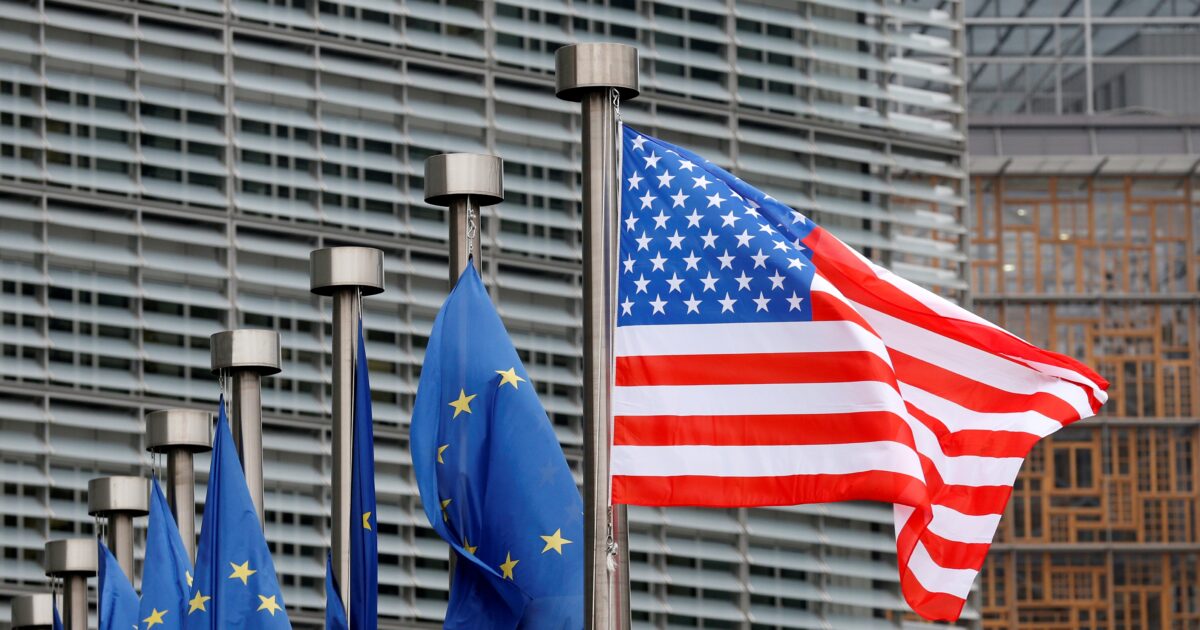After months of intensive talks and diplomatic consultations, the trade agreement between the European Union (EU) and of the USA It now depends mainly on Donald Trump.
European Commission President Ursula von der Laien will travel to Scotland to meet the US president on Sunday, as the two sides are aiming to reach an agreement before Friday’s deadline, with 30% of EU exports to the US exports.
“Intensive negotiations at the technical and political level are ongoing. Leaders will now evaluate the situation and consider the opportunities for a balanced result that will provide stability and predictability to businesses and consumers on both sides of the Atlantic, “said Paula Pingho, a spokesman for von der Laien.
EU officials have repeatedly warned that the agreement is ultimately dependent on Trump, which makes it difficult to predict the final result. The US president recently negotiated with Japan and appeared to change some final terms at the last minute, before an agreement was finally reached earlier this week.
The EU and the US have focused on a deal last week on an agreement that will impose an EU duties 15% on most of its trade with the US. Aviation exceptions are expected, some medical devices and generic medicines, various alcoholic beverages and a specific set of production equipment needed by the US.
Steel and aluminum imports will probably benefit from a quota under the arrangements discussed, but above this threshold they will face a 50%higher duty.
Along with a universal tax, the US president imposed a 25% tax on cars and car spare parts, and twice as much tax on steel and aluminum. It also threatens to impose new duties on medicinal products and semiconductors as early as next month, and recently announced a 50% duty on copper.
The EU expects the same 15% ceiling in some areas that could be targeted by future duties, including pharmaceuticals. However, this is one of the key points where Trump’s position will be crucial to reaching an agreement.
“We will see if we reach an agreement,” Trump said on his arrival in Scotland on Friday. “Ursula will be here, a very respected woman. So we look forward to it. “
Trump reiterated that he believed there were “50-50 chances” for an agreement with the EU, saying there are points of disagreement on “perhaps 20 different issues” that he did not want to analyze publicly.
“This would actually be the biggest agreement of all, if we do it,” the president said.
Trump gave similar chances of an agreement with European negotiators before leaving Washington, but also said the EU had “pretty good chance” to reach an agreement.
The US president announced in April the imposition of duties on almost all US trade partners, declaring his intention to restore domestic production, fund a massive expansion of tax relief and preventing the rest of the world from exploiting the US, as it was.
In addition to duties, any agreement will cover non -tariffs, economic security cooperation and EU strategic markets in areas such as energy and artificial intelligence chips. The Union has also been offered to remove duties on many industrial products and non -sensitive agricultural imports.
The terms of any initial agreement, which will probably take the form of a brief joint statement, if an agreement is reached, should be approved by the Member States, according to certain sources. The statement will be regarded as one step toward more detailed conversations.
Due to continuing uncertainty, the EU has also planned countermeasures if no agreement is reached. This would result in rapid duties up to 30% on US exports, worth about 100 billion euros ($ 117 billion), including Boeing Co. aircraft, American -made cars and whiskey Bourbon, in the event of a non -reached agreement and if it does not reach it. August 1st or in the future. The package also includes some restrictions on the exports of Paleosidir.
In the event of no agreement, the EU is also ready to proceed with the medium against coercive practice, a powerful commercial tool that will eventually allow it to target other areas such as market access, services and restrictions on public contracts, provided that the majority of Member States will support its use.
Although Trump did not explicitly associate the negotiations with non -commercial issues on Friday, he was intended to express concerns about migratory flows. Trump has imposed strict anti-immigration policies from his return to power, mass deporting those illegally in the US, while at the same time limiting the potential of legal immigration to the US.
“You have to stop this horrible invasion of Europe in many European countries,” Trump said, adding that he believes that “this migration kills Europe.”
